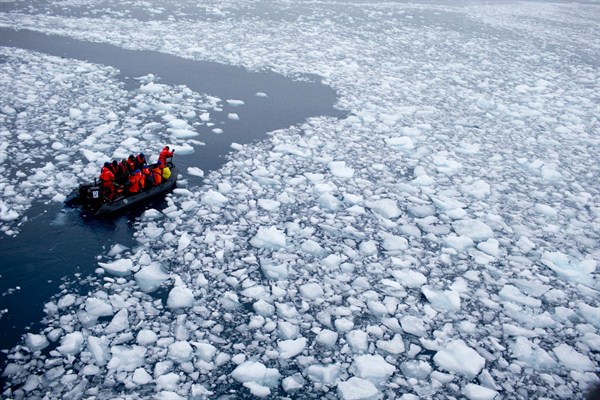The United Nations’ annual climate conference opened in Madrid last week following an important if quiet milestone: the 60th anniversary of the Antarctic Treaty, one of the most successful yet least known multilateral agreements ever signed. At the height of the Cold War, the treaty froze several countries’ sovereignty claims to the polar South, while designating Antarctica a part of the global commons. Nations would not compete geopolitically over the continent but instead cooperate peacefully there in the name of science and environmental stewardship. Although fraying at the edges, the treaty remains a triumph by any measure.
Unfortunately, for all its success, it cannot protect Antarctica from the accumulating ravages of global warming. Nor is the Madrid conference, known as COP25, likely to alter the dismal trajectory of the world’s greenhouse gas emissions. The juxtaposition of these two events—the Antarctic Treaty’s birthday and the desultory U.N. climate conference—underscores the urgency of embracing truly international politics that place as much weight on environmental sustainability as on interstate rivalry.
The primary impetus for the Antarctic Treaty was growing concern that the continent, long ignored as remote and inhospitable, was becoming a playground for geopolitical competition. By the 1950s, seven countries—Argentina, Australia, Chile, France, New Zealand, Norway and the United Kingdom—had already laid claim to parts of Antarctica, some of which overlapped. The deepening Cold War raised fears that the two superpowers might do so too and seek to enforce competing U.S. and Soviet claims militarily.

